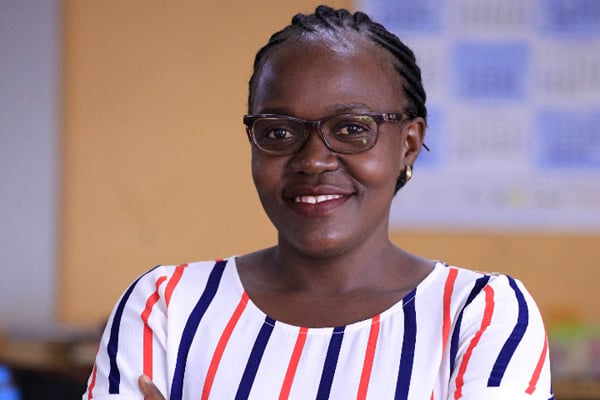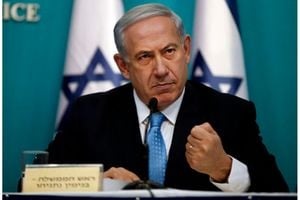Maj Kiggundu murder case: Journalists barred from court

Some of the suspects in the murder of Major Muhammad Kiggundu at the International War Crimes Division in Kampala April 19, 2022. PHOTO/ABUBAKER LUBOWA
What you need to know:
- A court clerk told the journalists to move out of court, saying the judge did not want them there.
There was drama at the International Crimes Division of the High Court yesterday as journalists were banned from covering the murder case of Sheikh Mohammad Kiggundu and his bodyguard.
By 9am, the time set for the hearing, journalists were already at the court premises. However, a court clerk, whose names could not be readily established, told the journalists to move out of court, saying the judge did not want them there.
This drew protests from the journalists.
“Why are we being chased out of court yet this is a public matter, we are not leaving unless a clear explanation is given to us. This has now turned into a habit for judges to ban us from court without giving us any reason,” one of the journalists told the court clerk as the others took their seats.
However, Justice Elizabeth Kabanda stood her ground.
“Who are you? Get out of my chambers, you are not party to this case,” Justice Kabanda said.
After court, the defence lawyer, Mr Geoffrey Turyamusiima, informed the journalists that they were banned from covering the case because of security reasons.
Mr Turyamusiima also informed the journalists that as per the court’s previous directive, the state tendered in 140 documents, which include several witness statements and other evidence pinning the accused on the murder.
He further stated that the state asked for more time in order to do the physical and electronic disclosure, which involves getting the evidence on the flash or compact disc of several audios or videos, and also going to the scene of crime.
Court has now set April 22 for review of physical evidence, May 22 for electronic disclosure and May 24 for reporting back to court.
The suspects are Sheikh Yahaya Ramathan Mwanje, 50, who was the acting Tabliq sect leader at Nakasero Mosque in Kampala; Muhammad Buyondo, alias Matiya, 43, a boda boda rider; Abdul Wahabu Sedegeya, 37, a boda boda rider; and Musa Sekandi, alias, Masanafu, 42, a businessman in Masanafu, a Kampala suburb.
Others are Yusuf Nyanzi Siraj, alias Fred Sentamu, Jibril Kalyango, alias Abu Aisha, Bruhan Kalyango Balyejusa and Noordin Lutaaya, alias superman. They were charged with two counts of murder.
Prosecution states that the accused and others still at large shot and killed Sheikh Major Kiggundu and his body guard, Sgt Steven Mukasa, at Masanafu Trading Centre in Rubaga Division on November 26, 2016.
The assailants were riding on two motorcycles.
Background
According to prosecution, the suspects who shot and killed Sheikh Major Kiggundu and his body guard, Sgt Steven Mukasa, in 2016 were part of a group called Kampala 17, which was known to have links to the Allied Democratic Forces that was terrorising Kampala. It is further stated that Sheikh Mwanje had on several occasions threatened to kill Maj Kiggundu who opposed his leadership.





